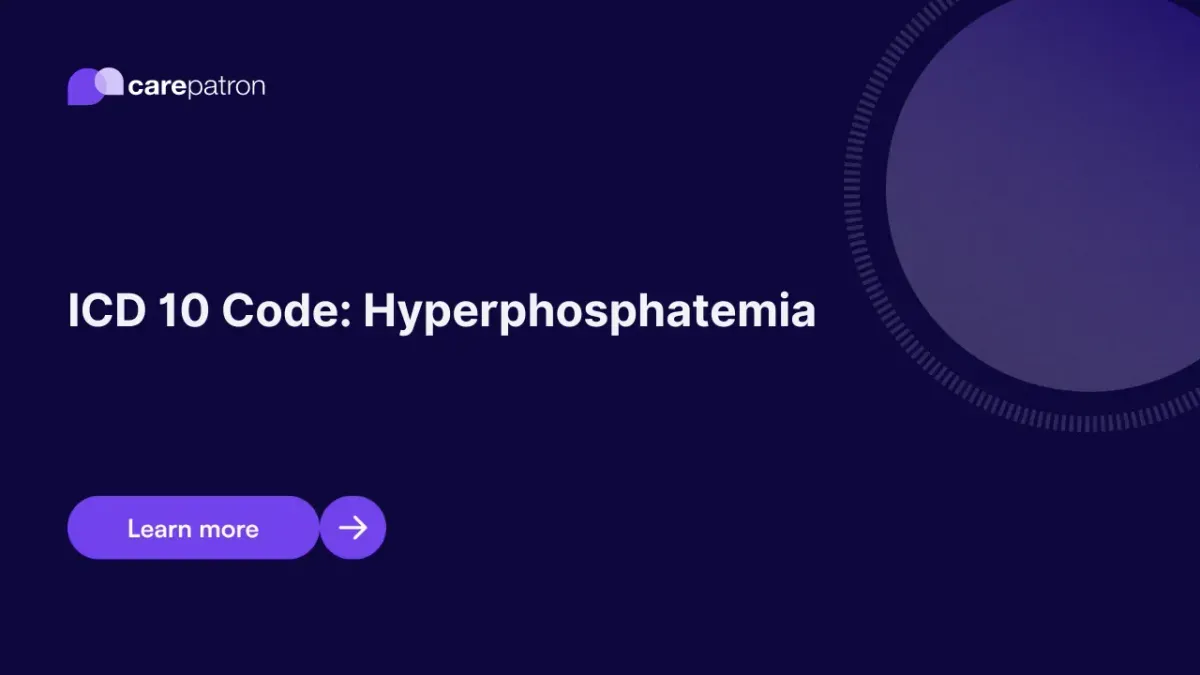
Hyperphosphatemia ICD-10-CM codes | 2025
Ensure accurate coding and reimbursement by learning more about the specific ICD-10 codes for Hyperphosphatemia.
Use Code
Commonly asked questions
When laboratory tests confirm elevated phosphate levels in the blood and the condition is clinically significant.
Yes, hyperphosphatemia diagnoses are billable when properly documented and coded.
Dietary modifications, phosphate binders, dialysis, and treatment of underlying conditions.
EHR and practice management software
Get started for free
*No credit card required
Free
$0/usd
Unlimited clients
Telehealth
1GB of storage
Client portal text
Automated billing and online payments
